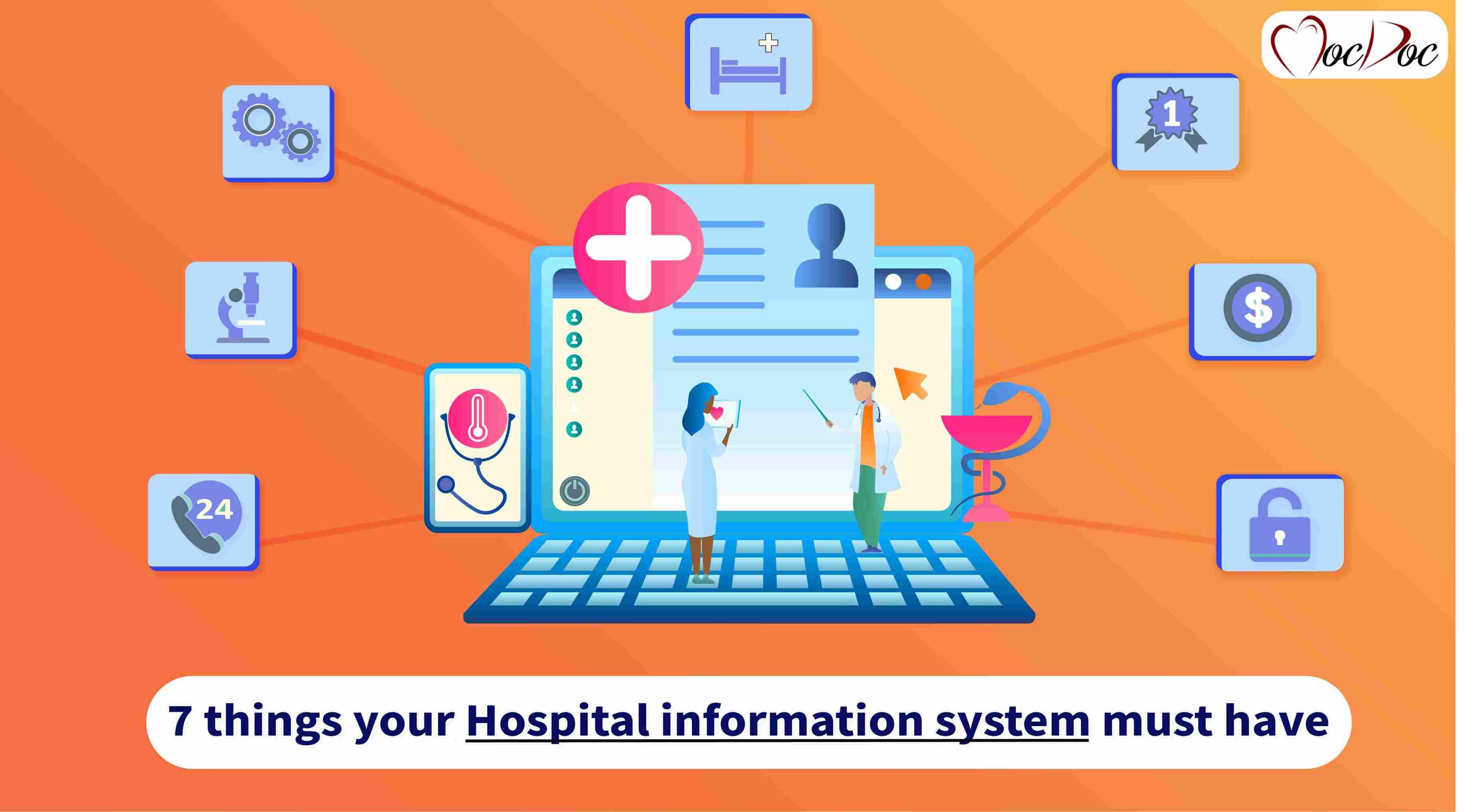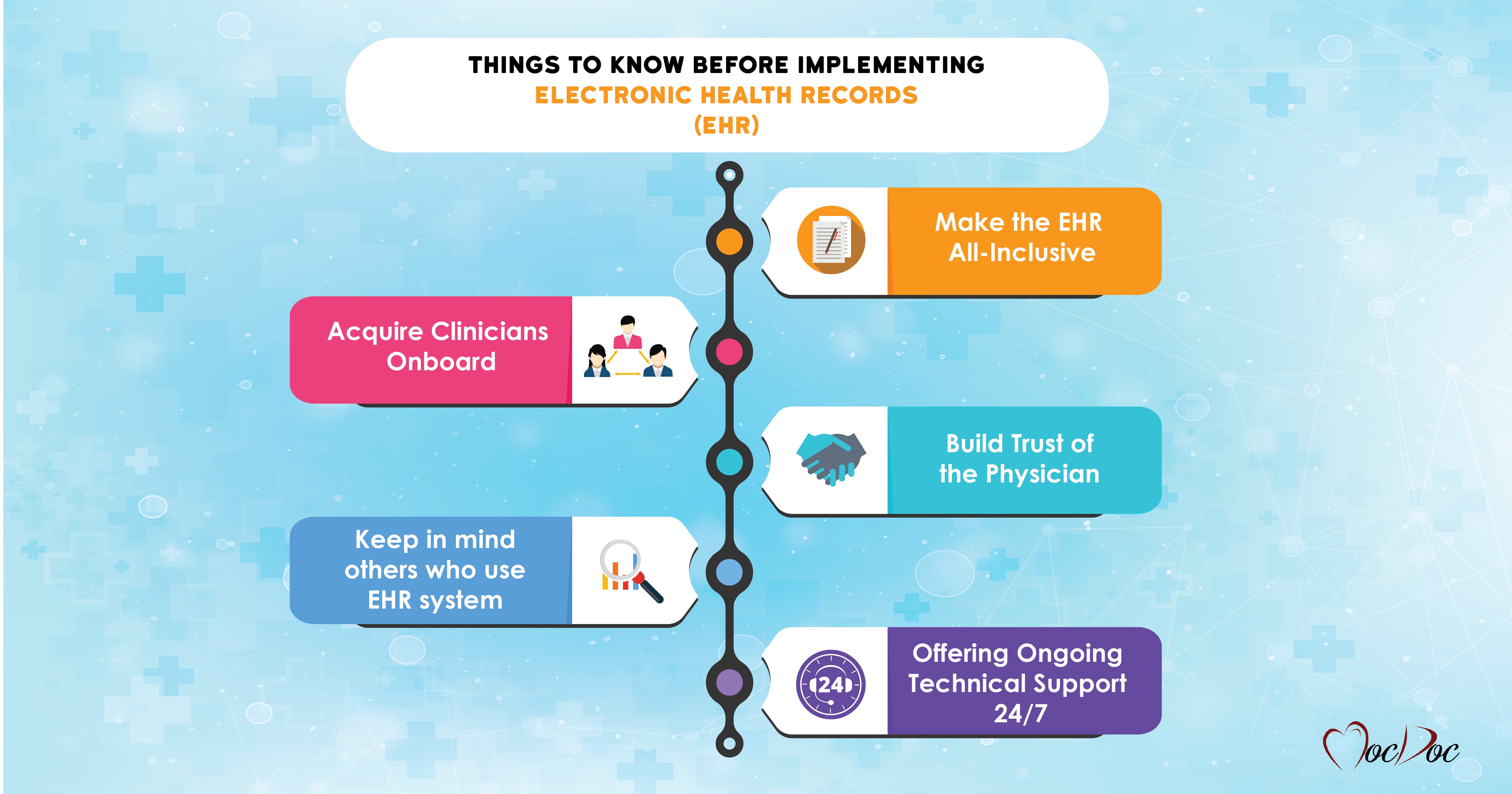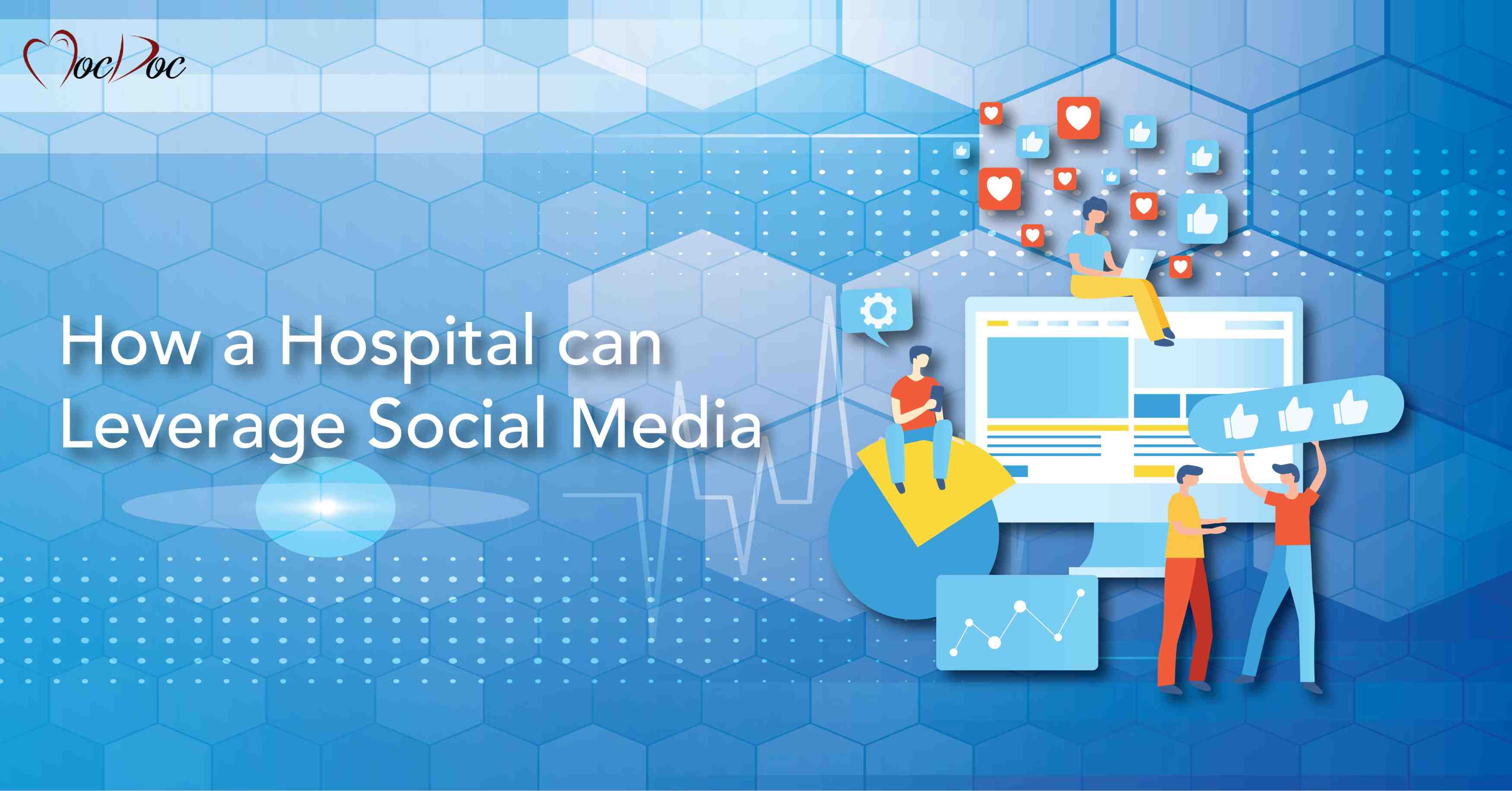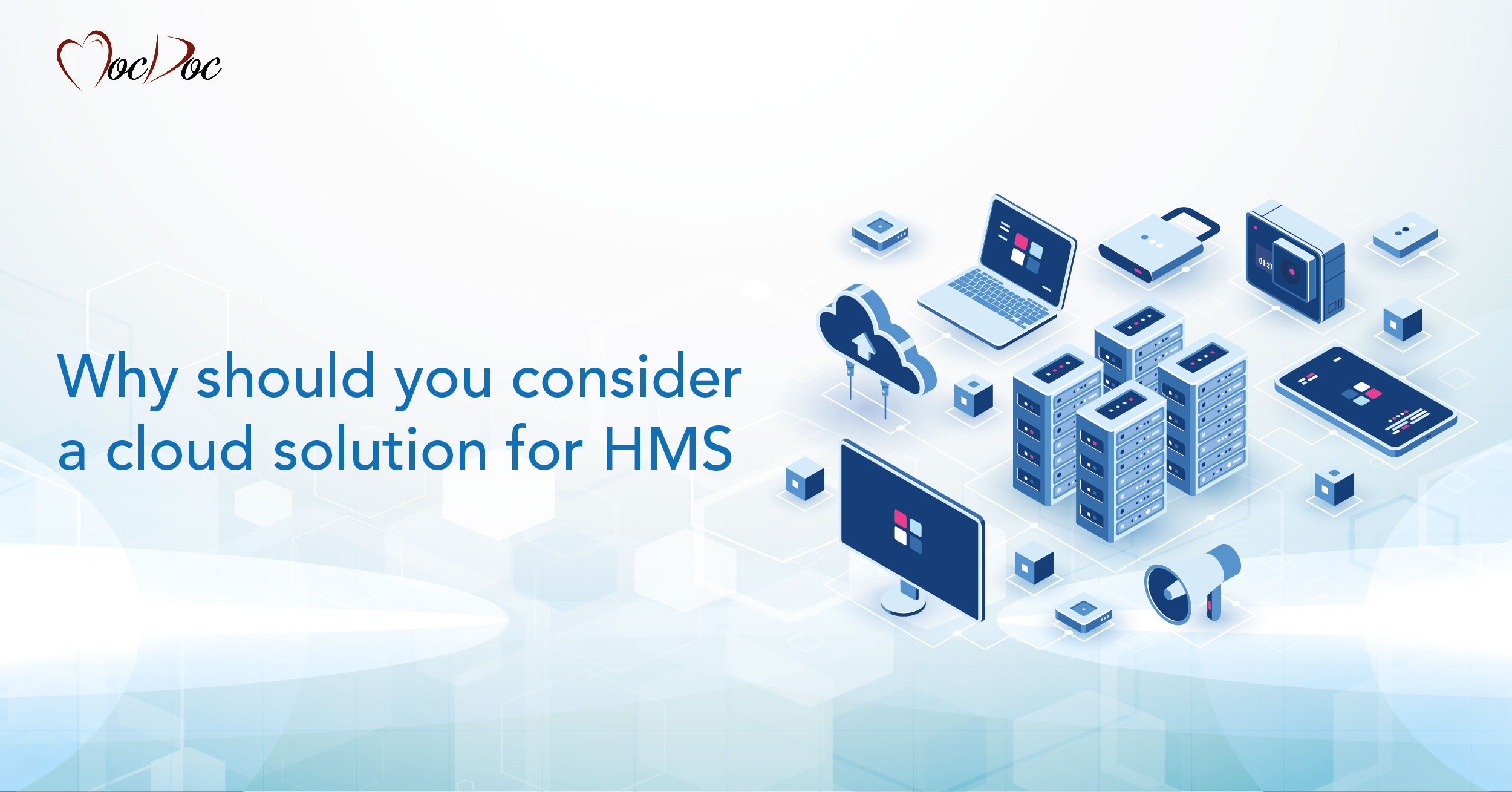MocDoc's Offerings
Why use an integrated hospital management system?
Published By
Rithika S
2021030815:40:30
Category HMS
What is an integrated hospital management system? How could it help the hospitals?
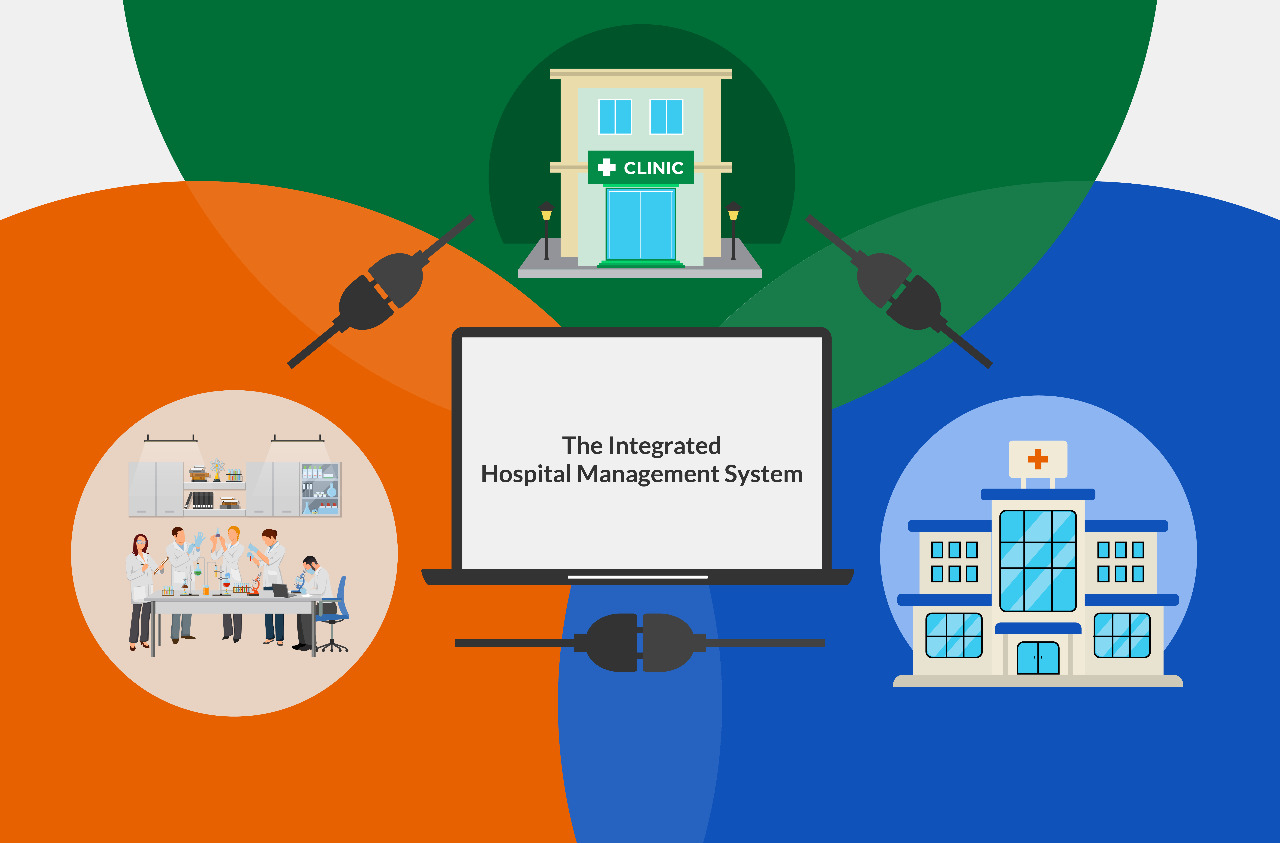
There are multiple departments in hospitals that carry out numerous activities daily. There is a lot of communication that takes place and information to share between departments which are crucial and need to be stored in a system with a good user interface. Hospitals use heterogeneous management systems like appointment scheduling software, telemedicine software, diagnostic software, EHR software, billing software, and more. It's a tedious task to maintain all this software and make a single report from various collections. Now, this requires a huge team! But what if a single management system could replace these heterogeneous systems efficiently?
An integrated hospital management system is one such system. Like any other hospital management system, it does not just store information but also connects all the departments under a single interface. It supports the various departments of a hospital such as a laboratory, clinic, and pharmacy in a single interface, making it easy for the departments to interact and share patient information.
Interoperability is the constant chain in any hospital as on average, a patient visiting a hospital engages at least with two departments. Well, taking the chain of interoperability digital with an integrated hospital management system will help the hospital attain efficiency in its core aspects. Here are a few points on how this helps the patients and the hospital.
- Patients part:
- Appointment: Make appointment booking hassle-free by letting your patients book appointments online via the website/mobile app.
- On the dot: Share electronic patient records with departments or patients themselves in no time.
- Reduce no-shows: Send SMS or email reminders to your patients, reminding them of their upcoming appointments.
- Personalized: Send health tips or diet plans to your patients based on their health conditions.
Hospitals part:- One for all: An integrated hospital management system will eradicate the need for different systems as it combines all the department modules.
- Performance Report: Generate weekly, monthly, or yearly performance reports of the hospital in a snap of fingers (No! You don't need a team to do this.)
- Reference: Makes it easy to manage and estimate referral payments to clinics and outsourced laboratory tests.
- Marketing: Conduct medical camps remotely with the help of offline camp management modules and let your patients know through email.
Thus, integration is crucial between all the departments of the hospital owing to interoperability. Integration between the departments will take their communication on a digital pathway, making the hospital's workflow seamless and easy. Here are the various areas of integration regarding a hospital.
Hospital-Laboratory: Have you ever had a phase where the laboratory used different software from that of the hospital? If yes, then you must know how time-consuming each process with the laboratory could get. However, an integrated hospital management system will allow you to share patient health records and required tests with the laboratory. Likewise, the laboratory can send you the patient's electronic test results in no time. This eliminates paperwork and other possible manual work.
Hospital-Pharmacy: How different is a hospital’s pharmacy from a standalone pharmacy? A pharmacy integrated with a hospital can get patients' e-prescriptions from doctors and provide timely medications to the in-patients. Further, the pharmacy can even take care of the supplements that are to be provided to the OT department. This integration allows the doctor to know about the availability of medicine in the pharmacy or its alternative before prescribing it to the patients.
Hospital-Clinic: Well, parent hospitals do have multi-location clinics, and these clinics can be integrated with the hospital in a single interface, cases that need prior attention are often shifted to the hospital and this lets the hospital learn about the patient's history quickly through the health records. An integrated hospital management system allows the hospital to overlook the functioning of its multi-location clinics by just switching between the identities of the organization.
Centralized Data vs Distributed Data: (Point of discussion)
Centralized Data or Distributed Data, you have got data to handle. Data needs to be taken care of efficiently for the smooth everyday functioning of the hospital. But which is the better way to do so?
When every department is integrated into a single software, the data is centralized. Thus a patient ID once created is just carried forward by every department, whereas in the dominance of heterogeneous software, a patient has to get themselves registered, with every department attended.
Organizing data and generating revenue or performance reports is very easy when the data is centralized. Most of the integrated patient management systems have the feature of an analytic dashboard which lets the management create weekly, monthly, or yearly performance reports of the hospital. When the data is distributed, it takes a lot of time to collect and organize them. This process is quite a lengthy one and requires a huge team at work.
Cost-wise advantage: Software has different types of pricing patterns, which may be budget-friendly or not. Like subscription-based, a percent of your revenue is based on the number of patients visiting. Having different software is going to charge you in different ways and might end up very expensive too. On the other side, when just a single piece of software is in use by all the departments, you are charged by a standard pattern. This gives you the advantage of forecasting the cost you might have to endure and if it's budget-friendly
Patient Experience: Patient satisfaction is a goal that any hospital wishes to achieve. It is the key to the productivity of the hospital. Perhaps, it creates the goodwill of the hospital. But how can software keep you far from achieving this?
Turnaround time: No hospital wishes to increase a patient's turnaround time, Neither do you. But this might be happening unintentionally by the use of different software by departments. For instance, A patient has to manually take all the health records to the laboratory and get themselves registered for a test. On receiving the test results, the patient will again have to take the results to the doctor, themself. This whole process is time-consuming for the patients, and such issues can be solved by using a single software.
Technical Issues: Diving into a scenario where a hospital maintains a separate billing software. Owing to a few technical issues the software turned faulty, which caused chaos at the reception. Problems like these are Stressful for the patients and are more likely to affect the reputation of the hospital. Such scenarios could be avoided with a cloud-based Hospital Management System where the cloud has a backup cloud to ensure such nightmares don't come true.
Flexible Meeting: With all the changes the recent time has brought, Telemedicine has become a need. Patients now prefer the telemedicine facility for smaller health issues so that long and discomfort travels can be avoided. Hospitals should adapt themselves to this method of patient appointment and make sure that their software supports telemedicine. This makes things easy for patients who are old or who reside far from the hospital. And also helps the hospital in obtaining patient satisfaction.
Ease for doctors and workers inside the hospital:
Integrating every department of the hospital will ease down a lot of work for the doctors and other workers of the hospital.
- Generating analytical reports with the help of a dashboard.
- Reduce manual paperwork by sharing electronic health records.
- Effective marketing Via email and SMS.
The right software will increase the efficiency and productivity of the hospital. Hope you found this blog on the Integrated Hospital management system insightful.
Related Articles
7 things your Hospital informa...
A flexible and efficient Hospital Information Mana..... Read more
Things You Need to Know Before...
The famous Kaiser Permanente installed the nation'..... Read more
How a hospital can Leverage So...
Social Media has brought tremendous changes across..... Read more
Why should you consider a Clou...
People in the past, ran programs or applications f..... Read more
